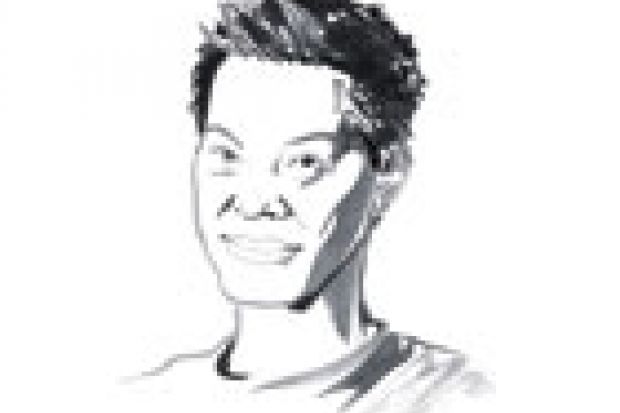I’ve realised that I need to get some new slides. When I talk to sixth-formers about science, and how it’s a useful thing to be interested in, I usually finish with a picture taken at Kennedy Space Center in 1977. It’s of the original cast of the television series Star Trek: Spock, Uhura, Scotty, Chekov and pals standing in a line in front of Nasa’s prototype Space Shuttle Enterprise. It is supposed to be an illustration of the boundary between science fiction and science fact: the crew of the fictional Starship Enterprise standing in front of a real starship of the same name.
Only none of the audience recognises my Star Trekkers any more. To the assembled sixth- formers, they’re just a gang of folk wearing flares and shirts with way-too-big collars. In recent years, even my classes of undergraduates have had trouble. Occasionally somebody points at George Takei - Mr Sulu to any self-respecting Trekkie - and says: “wasn’t that bloke in I’m a Celebrity…Get Me Out of Here?” and, inside, a little bit of me dies.
It’s not just my crappy pictorial metaphor that they have trouble recognising. To them, the late 1970s and the decade that followed must now look like an alternative reality.
Mrs Thatcher is somehow cast as our greatest and most terrible prime minister. Did she divide? Did she conquer? Both it seems
University life certainly ain’t what it used to be. The idea of a system of university education that was once provided essentially free for students, but was accessible only to a narrow elite, must now appear like it happened in some strange anti-universe to ours.
During the course, I try to explain the origins of the space race and its role as a surrogate battlefield for nuclear conflict. This is to make the point that our romantic Star Trek-like visions of space and its human exploration had the darkest of origins. But to my classes even the threat of nuclear annihilation appears to be something of an abstract concept these days.
Of course, Kim Jong-un has emerged as a most unlikely teaching assistant, rattling sabres in East Asia in a way that has helpfully revived the fear of global thermonuclear conflict. It seems unlikely, though, that he has the technology to lob anything our way. That would require some rather sophisticated launchers; for once we should be truly grateful that rocket science is rocket science. Nevertheless, his rhetoric and limited nuclear arsenal has the international community genuinely spooked. Even Fidel Castro has broken cover to say - and I paraphrase slightly - “Listen son, I had a go at this caper in the 1960s and it nearly worked out very badly for all of us.”
Other recent events have also taken us back in time. The death of Margaret Thatcher saw our screens filled with scenes from the last three decades of the 20th century. Financial recovery followed by boom and then bust again, the miners’ strikes, the Falklands War and the poll-tax riots. Meryl Streep even found her way into the news rolls; her depiction of the Iron Lady has already become part of the mythology.
None of this, I think, will help my undergraduates and sixth-formers understand this period. Watching the news summaries, even I wasn’t sure what to think. Depending on who you listen to, Mrs Thatcher either made Britain great or divided it for ever. Taken as a whole, the media coverage has been something other than simple hagiography. Mrs Thatcher is somehow cast as our greatest and most terrible prime minister. Did she divide? Did she conquer? Both, it seems. I understand that the BBC received 2 individual complaints that its coverage was biased against the former prime minister and another 268 saying that it was too kind. All in all, I guess that means they got it about right.
There’s nothing I can say about Mrs T that hasn’t been said. Every facet of her life has been put under the microscope in recent weeks, even her contributions to the invention of soft-scoop ice cream. To many in higher education, her reign signalled the beginning of the end, the first retreat of government from its responsibilities to the sector. Proponents, on the other hand, simply regard it as having been “the end of the beginning”; an opportunity to throw off the shackles of the state and grow.
Disagreement is the only constant across the lines of commentary. One struggles to find a description of the former prime minister that all might be able to agree with. Save perhaps this: Mrs Thatcher knew what she believed in, she liked a fight, she liked to win and she won often. But to many, even her closest political allies, those victories were often regarded as pyrrhic.
I offer this in epilogue. When I was a junior doctor we had a standard battery of 10 questions that we used at the bedside to try to assess the level of cognitive decline in patients suffering from dementia. These included asking patients the dates of the First World War, the time of day, the current date and the name of the current monarch. The name of the prime minister was also part of that assessment but, during Thatcher’s stewardship, studies found that because so few people got that question wrong, it ceased to be useful as an accurate discriminator.
Mrs Thatcher, of course, would herself later fall victim to the disease of dementia before succumbing to stroke. But although she is now gone, it seems clear that she will never be forgotten.
Register to continue
Why register?
- Registration is free and only takes a moment
- Once registered, you can read 3 articles a month
- Sign up for our newsletter
Subscribe
Or subscribe for unlimited access to:
- Unlimited access to news, views, insights & reviews
- Digital editions
- Digital access to THE’s university and college rankings analysis
Already registered or a current subscriber? Login




